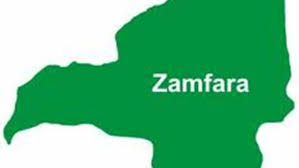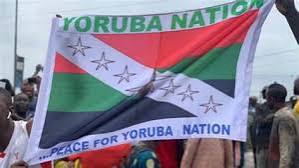Nigerians have been suffering under the gruelling burden of the high cost of purchasing cooking gas that should ordinarily be affordable. SUNNY IDACHABA examines this in the light of repeated assurances from NLNG of abundant stock for end users.
It seems that in Nigeria, absurdity is normal. This is because most times, the country is likened to someone who lives close to a pool of water, yet dies of thirst.
A good example can be seen in the oil and gas industry where Nigeria has in abundance oil deposits, yet citizens cannot afford the prices for reasons only industry players struggle to explain away, most often.
In the recent times, natural gas deposit from which cooking gas that is one of the abundant resources Nigeria is endowed with has become a scarce commodity such that consumers who were tricked into migrating from using kerosene to gas can no longer afford it despite the repeated assurances by government that there is enough stock that can serve the domestic needs of every Nigerian.
For the umpteenth time, in the last two weeks, for example, the price of a kilogramme of cooking gas shot the ceiling such that most families now resort to charcoal, which is like a return to 2019 when the scarcity started. As at the time of filing in this report, the average price of 1kg cooking gas has gone up from N696 as at June 2023 to N1, 200 in many depots as at November representing 61 percent increase.
The development, however is not new as it had attracted the attention of the National Bureau of Statistics in July 2022, when in one of its reports, it noted that the average price of 5kg cooking gas which was N4, 397.68 in July last year rose to N4, 456.56 in August of the same year indicating a 1.34 per cent increase on a month-on-month basis. That was then. As at today, the same kilogramme goes for between 5,000 and 6,000 depending on the depot and part of the country.
NBS disclosures
It said, “On a year-on-year basis, the August 2022 price was a 101.17 per cent increase over the price of N2, 215.33 paid for the same volume of gas in August 2021.”
In that report, NBS said the average retail price of 12.5kg cooking gas increased from N9, 824.07 in July to 9,899.34 in August 2022, thereby representing 0.77 per cent month-on-month increase.”
As the year 2022 wound down into 2023, the price fell only to rise again in the last two weeks. The recent rise in price was confirmed by NBS in its ‘Cooking Gas Price Watch’ for September 2023 released recently in Abuja.
The report said the average price for refilling a 12.5kg cooking gas increased by 0.58 per cent on a month-on-month basis from N9, 194.41 in August 2023 to N9, 247.40 in September 2023.
NLNG’s responses
In responding to the upswing in the prices of cooking gas, the Nigerian LNG Limited, the Company responsible for the supply of cooking gas in the country, said there are three factors around the domestic macro-economic developments as well as global factors that have combined to constrain adequate supply in the domestic market, but again assured that it would sustain the market with about 1.3 million metric tonnes of gas in order to re-flate the supply.
A statement by the Company partly read, “The domestic LPG market, like any other, is subject to dynamic market forces and various external factors. Such factors as changes in exchange rates, and escalating price benchmarks mirroring crude oil prices, and the Panama Canal drought-induced vessel scarcity impacting transport costs, especially for imported LPG, have had significant effect on energy prices in the recent times and could undoubtedly be some of the reasons for recent price hikes witnessed in the domestic market.
“NLNG has been making contributions to the domestic LPG market, spurring the steady growth of the nation’s DLPG market volume from less than 50,000 metric tonnes of imported LPG in 2007 to over 1.3 million metric tonnes of both domestic and imported LPG today. NLNG currently delivers over 450,000 metric tonnes per annum of Butane, the main product in cooking gas and has embarked on domestic propane supply to further grow the market.
“The Company has committed its entire Butane and Propane production to the domestic market from 2023 and despite feed gas challenges, continues to supply LPG to the domestic market, accounting for approximately 40% of the total market volume. Since the beginning of the year, NLNG has delivered over 380,000 metric tonnes of LPG using the Company’s dedicated LPG vessel.
“NLNG maintains an unwavering commitment to ensuring the reliable supply of its LPG production to the domestic market at prices that are reflective of the market. The Company is collaborating with relevant industry stakeholders to achieve this objective and will remain focused on achieving its mission.”
This is not the first time that the government would be making mouth-watering promises of a seamless transition from charcoal/kerosene to clean cooking gas. The immediate past minister of state for petroleum, Timipriye Sylva, not only assured Nigerians that cooking gas would be available, but that the government would henceforth take ownership of all cooking gas in the country. He spoke on a live TV programme in Abuja.
The announcement was greeted with cheers by everyone, but till the life of that administration ended in May 2023, no one heard anything about it except how market forces were determining the prices of gas.
Corroborating Sylva, the programme manager of National LPG Expansion Plan, Dayo Adeshina, said the government would make available five to 10 million liquefied petroleum gas (LPG) cylinders into the market by the middle of next year. The statement, however, is silent on whether that move would translate into the availability/affordability of cooking gas.
He nevertheless said there is a gas reserve of 203 trillion cubic feet as, according to him, the federal government intends to collaborate with stakeholders to ensure its safety and utilisation.
“We are starting the cylinder injection under the first phase in 11 pilot states and the Federal Capital Territory (FCT) with two states from each of the geopolitical zones.
“The states are Lagos, Ogun, Bauchi, Gombe, Katsina, Sokoto, Delta, Bayelsa, Ebonyi, Enugu, Niger. The cylinders will be injected through the marketers who would be responsible for the cylinders and the exchange will take place in homes and not in filling stations.
“What this means is that going forward, cylinders will not be owned by individuals but by the marketers who will ensure that they are safe for usage.”
This, he said further, would enable the country to reduce carbon dioxide (CO2) emission by about 20 percent and create millions of jobs for Nigerians.
NNPCL’s reaction
Speaking in the same vein, the group managing director of Nigerian National Petroleum Company (NNPC) Limited, Mele Kyari, said government plans to set up a gas-funding company that would facilitate supply of 20 million cylinders of petroleum liquefied gas (LPG) into the Nigerian market in the next half a decade.
He spoke at a Summit in Abuja on ‘Energising the Future: Leveraging the India Experience to Achieve Nigerian National LPG Aspirations’.
Kyari disclosed that Nigeria has identified its abundant gas resources as the driver of an energy transition, which informed her net zero commitment by 2060 and the declaration of 2021- 2030 as the ‘Decade of Gas.’
He said, “NNPC Limited is an energy company with new investments in gas, power, and renewable energy energy. Key pipeline projects such as ELPS I1, OB3 and AKK to deliver a total of 6.2 billion cubic feet of gas per day to demand nodes across the country are at various stages of completion.”
An expert’s view
An industry expert, Dan Kunle, while speaking on the reason behind the astronomical rise in the prices of cooking gas said the increase is attributed to two reasons.
“Low investments in natural gas exploration in the country which are obtained from crude oil exploration have reduced drastically due to crude oil theft.”
In addition, he emphasised that the insufficiency in gas exploration investments and the pervasive issue of crude oil theft, which directly affects associated gas production, have steered the nation’s attention towards seeking an alternative solution of importing Liquefied Petroleum Gas (LPG) into the country.
The government has continued to give hopes of sufficient supply to Nigerians, saying that there is no need for panic, but as the economy bites harder, many homes are resorting to the traditional use of charcoal instead of gas since kerosene is not even affordable at the moment.




